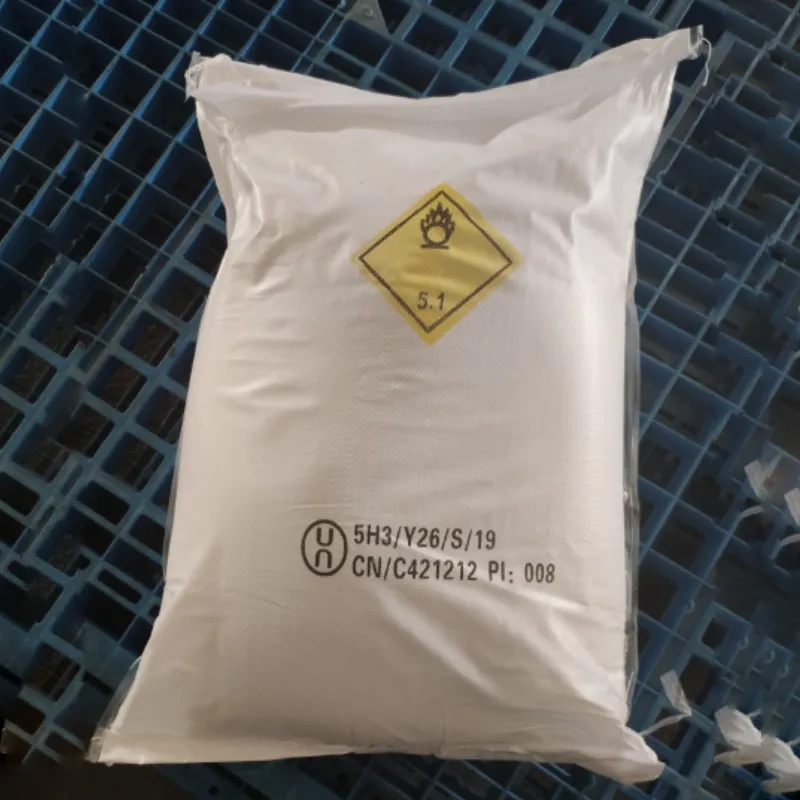
e223 food additive
Understanding E223 A Versatile Food Additive
In the complex landscape of food additives, E223, also known as sodium metabisulfite, stands out for its diverse applications and effectiveness in food preservation. As with many food additives, its primary role is to enhance the safety and shelf life of various products. This article delves into the nature, uses, safety concerns, and regulations surrounding E223, offering a comprehensive understanding of this versatile compound.
What is E223?
E223 is a chemical compound that appears as a white crystalline powder and is commonly used in the food industry as a preservative and antioxidant. It is produced by the reaction of sodium sulfite with sulfur dioxide. Due to its strong antimicrobial properties, E223 helps to inhibit the growth of bacteria, yeasts, and molds, making it an effective agent for preserving food quality. This compound is typically used in dried fruits, wines, and some soft drinks, among other products.
Uses of E223
The primary function of E223 in food products is as a preservative. It prevents spoilage and maintains the color and flavor of food items. For instance, in the production of dried fruits, E223 helps to prevent browning caused by enzymatic reactions, thereby preserving their vibrant colors and appealing taste. In the winemaking process, E223 is employed to inhibit unwanted microbial growth and oxidation, ensuring a better quality of the final product.
Furthermore, E223 can be found in food products like potato chips, canned vegetables, and sauces. In these applications, it not only extends shelf life but also contributes to the stability of the color and flavor of the food items. The use of E223 is crucial in today's global food supply chain, where maintaining the integrity of food products during storage and transportation is of paramount importance.
e223 food additive

Safety Concerns and Regulations
The use of E223 is not without controversy. Some individuals may experience allergic reactions to sulfites, including reactions such as headaches, asthma, or gastrointestinal discomfort. Consequently, certain countries, including the United States, have established guidelines for labeling products containing sulfites. Foods that contain more than 10 parts per million (ppm) of sulfites must be clearly labeled to inform consumers of their presence, allowing those with sensitivities to avoid such products.
Regulatory bodies like the European Food Safety Authority (EFSA) have conducted assessments to determine the safety of E223 in food. They have concluded that, when used within prescribed limits, E223 is safe for consumption. However, continuous monitoring and research are essential to ensure public health safety, especially as the prevalence of food allergies and sensitivities rises.
Conclusion
E223, or sodium metabisulfite, is a valuable food additive widely used for its preservative and antioxidant properties. Its role in maintaining food quality and safety cannot be understated, particularly in an era where food preservation is more critical than ever. While its safety is generally recognized when used appropriately, it remains imperative for consumers to be aware of potential allergens and for regulatory bodies to enforce proper labeling practices.
As consumers become increasingly conscious about what they eat, awareness of food additives like E223 is essential. Understanding the functions and implications of such additives can empower consumers to make informed choices about their dietary options, ensuring a healthy and balanced approach to nutrition in today’s food environment.
-
Buy High-Quality Trichloroisocyanuric Acid for Sale | TCCA 90% SupplierNewsAug.30,2025
-
Pure Sodium Dichloroisocyanurate Dihydrate | Powerful DisinfectantNewsAug.29,2025
-
Industrial Chemicals: Quality & Purity for Every IndustryNewsAug.28,2025
-
Nitrile Rubber Honoring Strict Production StandardsNewsAug.22,2025
-
Aspartame Ingredients Honoring Food Safety ValuesNewsAug.22,2025
-
Fertilizer for Balanced Plant NutritionNewsAug.22,2025
-
Cyanide Gold Processing with High Purity AdditivesNewsAug.22,2025
Hebei Tenger Chemical Technology Co., Ltd. focuses on the chemical industry and is committed to the export service of chemical raw materials.
-

view more DiethanolisopropanolamineIn the ever-growing field of chemical solutions, diethanolisopropanolamine (DEIPA) stands out as a versatile and important compound. Due to its unique chemical structure and properties, DEIPA is of interest to various industries including construction, personal care, and agriculture. -

view more TriisopropanolamineTriisopropanolamine (TIPA) alkanol amine substance, is a kind of alcohol amine compound with amino and alcohol hydroxyl, and because of its molecules contains both amino and hydroxyl. -

view more Tetramethyl Thiuram DisulfideTetramethyl thiuram disulfide, also known as TMTD, is a white to light-yellow powder with a distinct sulfur-like odor. It is soluble in organic solvents such as benzene, acetone, and ethyl acetate, making it highly versatile for use in different formulations. TMTD is known for its excellent vulcanization acceleration properties, which makes it a key ingredient in the production of rubber products. Additionally, it acts as an effective fungicide and bactericide, making it valuable in agricultural applications. Its high purity and stability ensure consistent performance, making it a preferred choice for manufacturers across various industries.





